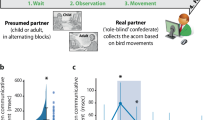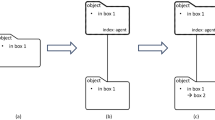Abstract
Ever since Premack & Woodruff's classic article^1^, which introduced the term "theory of mind", researchers have claimed that strategic deception is the most natural behavioural consequence of understanding false belief. Here we challenge that claim, and provide evidence for the first time that the earliest manifestation of false belief understanding in human development is found in young children's emerging pro-social behaviours. In a modified false belief task, children were asked either to choose one protagonist they should help to find the object (the pro-social context), or to choose one they need to deceive so that none of the protagonists can find the object (the competitive context). The results show that the pro-social motive, but not the competitive motive, boosts early false belief understanding. This is most clearly contrasted with findings that apes, our closest living relatives, are capable of intentionally manipulating others by concealing information only under competitive motives, not under cooperative alternatives. Thus, the current findings are the strongest to date that sophisticated understanding of others' belief in humans has its unique origin, separate from the primate origin at some point in recent evolution, when cooperative and communicative motives played an essential role for their survival.
Similar content being viewed by others
Article PDF
Author information
Authors and Affiliations
Corresponding author
Rights and permissions
About this article
Cite this article
Matsui, T., Miura, Y. Pro-social motive promotes early understanding of false belief. Nat Prec (2008). https://doi.org/10.1038/npre.2008.1695.1
Received:
Accepted:
Published:
DOI: https://doi.org/10.1038/npre.2008.1695.1



